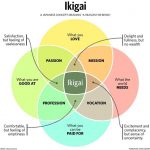Why ‘Retirement’ was Never my Goal………


By: Nanette Fairley
April 7, 2021
When I left my full-time job, on purpose, in April 2019, I didn’t really think of myself as retiring. I was 52 years old and felt about 35. I thought of this change as giving me the ability to be significantly more flexible than I had ever been before. And I can’t stand the term ‘retirement’! Until something better comes along, I’m adopting an idea Peter Laslett articulated, and calling it my ‘Third Age’.
Running my own business for 16+ years, being my own boss, never really gave me the flexibility everyone thinks it does. Quite the opposite in many respects – you were always ‘on’! I use to say I never got to take holidays because my boss (me!) was a real cow!!!🙂 So leaving the full-time world for greater flexibility was a driving goal.
Why else did I want more flexibility? Several of my significant others and some close friends had done battle with serious cancers. Most of them made it but one in particular, a wonderful uncle, did not. An incredibly hard worker, I felt he had been so unfairly ripped off. It did change some hard wiring in me. I didn’t want to work my whole life and be left with a list of things I would do ‘someday, maybe.’
While I resonate with some of the ideas of the FIRE movement*, what I do not connect with is that retirement seems to be THE goal. When I left my full-time career, I didn’t say I was ‘retired’, although in today’s definition of the word, perhaps I was. I also didn’t think I would never work again, but I did resolve to do what engaged me, motivated me and got me out of bed in the morning.
One of the models I relate to in finding my what’s next, is the Japanese concept of Ikigai, or reason for being. It suggests that, as life is short, we shouldn’t squander it on things we don’t enjoy and perhaps should compromise less on what will make us happy long-term. It gets us to think about what gives our life meaning and purpose. Which is perhaps, even more important, when you no longer have the identity and structure that goes along with a full-time job.
Working through this model you get to reflect on four questions:

Such models help you broaden your view to find what can work for you. I am under no illusion that finding your what’s next after full-time employment is easy. It may take months or even years to explore and, of course, it may change over time. In the words of someone wise, ‘you have to kiss a lot of frogs……..’ 🙂
To reiterate, I don’t see retirement as an end goal in itself. But leaving full-time employment does give the flexibility to include things you enjoy doing and not waste time on things you don’t. Don’t compromise on your Third Age, but perhaps don’t expect it to all fall in place over night. That will require some reflection, experimentation and definitely some exploration.
“Fear nothing. Be bold and build your own pathway with your hands.” Julia Tsoi (author)
What’s next for you?
*Financial Independence, Retire Early
#ikigai #Financialfreedom #Findingpurpose #ThirdAge #Whatnextology
